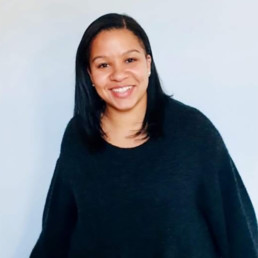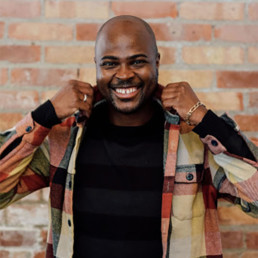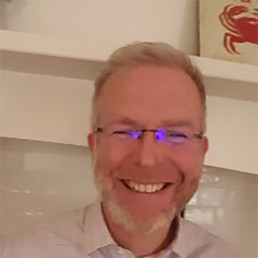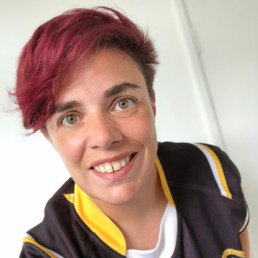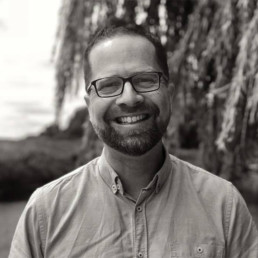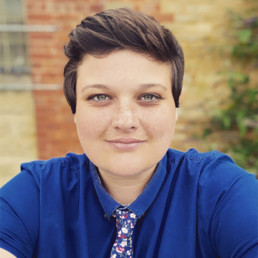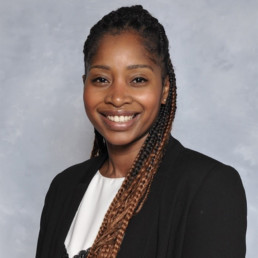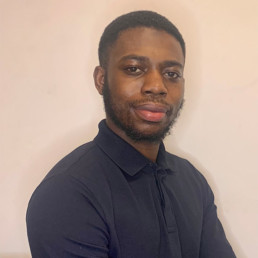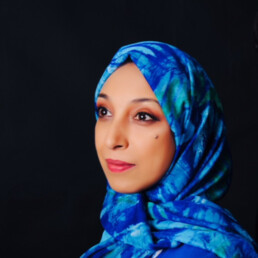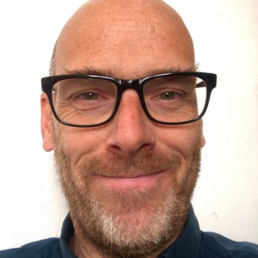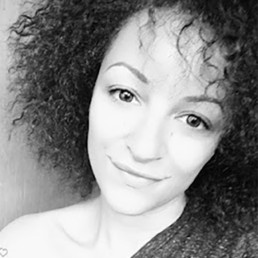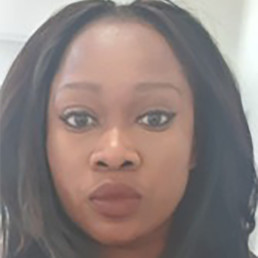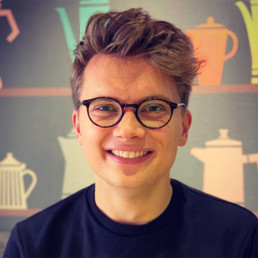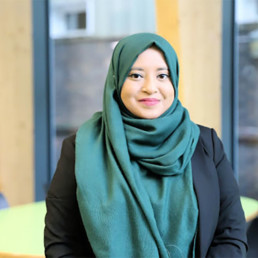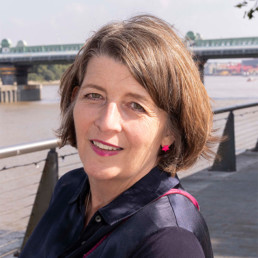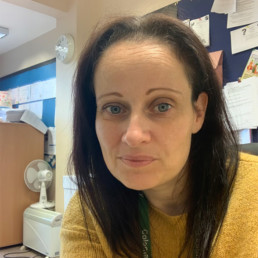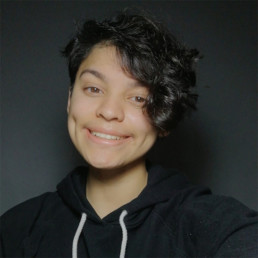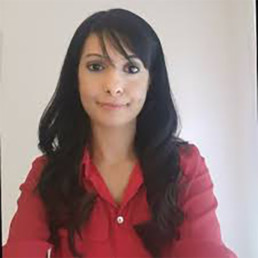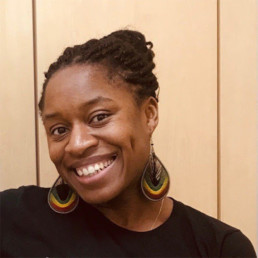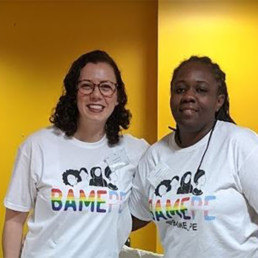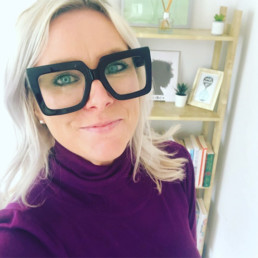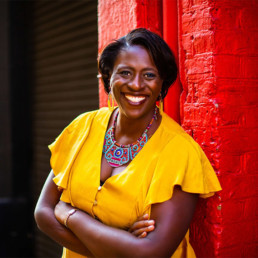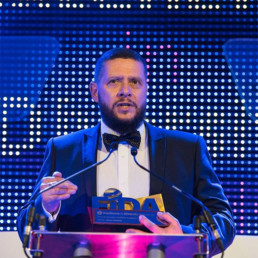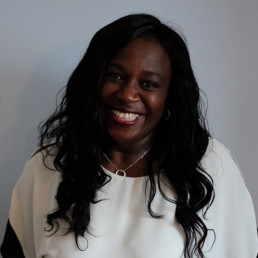Limit Less
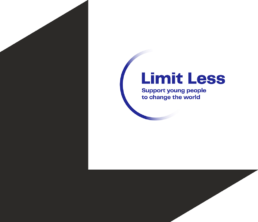
Limit Less
The Limit Less campaign aims to increase the number of young people from currently underrepresented or underserved groups in the physics community to choose to do physics post-16.
- Girls
- Young people from disadvantaged backgrounds
- LGBT+ young people
- Disabled young people
- Young people of Black Caribbean descent
The campaign works across families, communities, schools, policy, social media and media. In schools, we are working on a whole-school approach to inclusion.
The IOP knows that too many young people are exposed to misconceptions and stereotypes about physics and are made to feel that they can’t do physics, or that they just don’t fit in. We want everyone to know:
- Doing physics empowers young people to change the world
- Physics is for people of all identities and backgrounds
- Physics depends on teamwork and diverse viewpoints
- Being a physicist isn’t the only career available to physics students
- Physics opens the door to many stable career options, including well-paid jobs that do not require a degree
RARA Education Project CIC
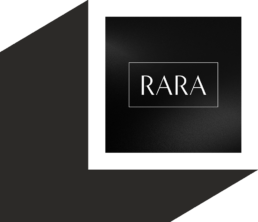
RARA Education Project CIC
RARA is a black-led organisation committed to improving diversity, equity, and inclusion practices in learning and working spaces. Our mission is to foster real and authentic representations of Africans and Caribbeans in society, ensuring that Black people have equal opportunities to thrive, progress, and advance.
Our bespoke services are designed to meet the specific needs of each organisation, and we work collaboratively with our clients to develop training and development opportunities that promote a culture of inclusion. Using research-based approaches and principles, we provide guidance and support to help organisations establish an environment where Black people feel empowered to succeed and reach their full potential.
At RARA, we understand that every organisation is unique, and our services are tailored to reflect this. Our approach ensures that our services are relevant, effective, and sustainable, creating long-lasting results for our clients. Our commitment to diversity, equity, and inclusion is reflected in our partnerships with individuals, organisations, and institutions. We believe that representation matters, and that Black people deserve to be accurately represented in all aspects of society.
Join us in our efforts to create a more equitable and inclusive society, where Black people can not only survive, but thrive. Contact us today to find out how we can support your organisation in establishing a culture of inclusion that fosters the growth and development of all individuals.
RARA Education Project CIC Launches Groundbreaking Research Project to Improve the Lived Experience of Black Secondary School Students across Liverpool and Leeds.
The RARA Education Project CIC is proud to announce the launch of a new research project aimed at improving the experience of Black secondary school students in Merseyside and West Yorkshire. The project, set to begin in April, will explore the lived experience of Black students in these areas and identify the support they need to succeed.
The research project will be led by Co-Founders Chiedza Ikpeh and Emma Taonga, who bring a wealth of experience in education and social justice. The project aims to amplify the student and voice and identify the support strategies and interventions necessary to help Black secondary school students in Merseyside and West Yorkshire excel in education.
“We’re excited to embark on this research project and explore the experiences of Black students in Merseyside and West Yorkshire,” said Chiedza Ikpeh, Co-Founder of RARA Education Project CIC.
“Our goal is to identify the challenges that Black students face and design support strategies and interventions to help them succeed.”
The RARA Education Project CIC is actively seeking partnerships with schools and other organizations interested in participating in this important research project. Interested parties are encouraged to subscribe to the RARA Education Project CIC mailing list to stay updated on progress and learn how to get involved.
Our #DiverseEd Events Archive
Our #DiverseEd Events Archive
Our #DiverseEd Events Archive
#DiverseEd Virtual IX October 2022
- Full Event
- Introduction – Hannah and Bennie introduce Diverse Ed IX
- Abed Ahmed – Supporting Young People and Colleagues Who Stammer
- Nicky Bright – Goals for Raising Menopause Awareness
- Lisa Panford – Diversifying the MFL Curriculum
- Allison Zionts – Becoming a 'Living Resource' for Students and Colleagues
- Robert Power – From Local to Global: Community, Global Curriculums and Total Inclusivity
- Naveed Khan – Breaking the Proverbial Glass Ceiling
- Christalla Jamil – Disrupting the Leadership Trajectory
- Esther Mustamu-Daniels – The Impact of DEI on Pupils and the Curriculum (Through an International Lens)
- Adam Vasco – Do Disrupt. Challenge the Status Quo or Become It
- Esther Cummins – Inclusive Ethos: Stating the Obvious?
- Lizzy Swan – Understanding ADHD in Girls and Women
- Pledges and Close
#DiverseEd Virtual VIII June 2022
- Amy Sayer – Supporting Staff Mental Health in the Current Context
- Lindsey Parr – Role Model Stories: The Power of Storytelling
- Azuraye Williams – DEIB Walks: Providing Support Across a Multi-academy Trust
- Bianca Chappell – The IMPACT of Microaggressions: My Lived Experience
- Edel Cronin – Queer Clubbing
- Caroline Lowing – Authentic Leadership: Being a Different Type of School Leader – Inside and Out!
- Orla McKeating – Why Representation Matters for Children & How We Can All Be Accountable
- Meena Wood – Diversifying the Curriculum Through Mapping and Empowering Learners Through Inclusive and Equitable Assessment
- Rachel Clarke – Standing on the Shoulders of Giants; Anti-racism Learning, Leading and Legacy
- Darren Meitiner-Harvey – Diversifying the Curriculum: Forgotten Voices
- Harry Scantlebury – Ch-Ch-Ch-Changes’: from Ms to Mr. On Doing Hard Things and Telling Your Story
- Pledges and Close
#DiverseEd Virtual VII March 2022
- Full Event
- Anna Szpakowska – Character and Values Based Learning: A Teacher's True Legacy
- Andy Moffat – No Outsiders: Teaching for Global Citizenship
- Rebecca Peacock and Vicki Parry – Two Things You Can Do on Monday to Make Your Classroom More Inclusive
- Charlotte Bell – Bringing up Baby: Balancing Parenthood and Your Teaching Career
- David Lowbridge-Ellis – 'This Session Is Gay!'
- Halil Tamgumus – Mirrors and Windows – Creating a Culture of Belonging to Foster and Develop Future World Changers
- Adrian McLean – Legacy: How to Create a Legacy Through Allyship & Coalition Building
- Artemi Sakellariadis – Equality: Working with the "How Can We?" Question
- Mariam Sylla – Learning Your Legacy: An ECT's Perspective
- Angela Dixon and Zaffreen Kosir – Scaling the Heights Towards Diversity & Equality
- Pledges and Close
#DiverseEd Virtual VI January 2022
- Dr Emily Meadows – Designing LGBTQ+ Equitable Schools
- Antonia Spinks – How Destigmatising Flexible Working Can Support Equality
- Albert Adeyemi and Johnoi Josephs – Black Men in Ed: Wanted, Needed or Both?
- Nadine Bernard and Ethan Bernard – Systemic Stories - Addressing Racial Inequalities
- Jo Brassington – Identity: An Infinite Jigsaw
- Malarville Krishnasamy – What's in a Name?
- Dr Shrehan Lynch – PhysEquity: Driving Representative Change in PE
- Rhia Gibbs – Stop Talking Representation and Start Doing
- Dr Anna Carlile – LGBTQ Inclusive Education in Schools Serving Faith Communities
- Mahlon Evans-Sinclair – Visibility and Control of the Narrative: The Value of a Virtual Black Staffroom
- Pledges and Close
#DiverseEd Virtual V June 2021
- Full Event
- Session 1 – Diverse Children – Artemi Sakellariadis - Disability Inclusion in Mainstream Schools; Jac Bastian - Diverse Role Models; Temi Akindele Barker - A Decade of Diversity; Lois Nethersell - Engaging and Empowering Students in Diversity, Equity and Inclusion Work; Kahir Abdul - Supporting Children with Special Educational Needs to Connect Organically with the Wider World
- Session 2 – Diverse Curriculum – Andrea Silvain - An Anti-Racist Curriculum; Kyrstie Stubbs - Supporting LGBT in Primary Schools; Laura McConnell - A Pedagogy for Neurodiversity; Dr Harriet Marshall - Building Empathy and Resilience for a More Just and Sustainable World; Jordan Day - Global Equality Research in the classroom
- Session 3 – Diverse Staff – Dr Jill Berry - Coaching and Mentoring for Diverse Leaders; Louise Cooper - The MixEd story. Amplifying the Voices of Mixed Heritage Educators; Shuaib Khan - Finding Your Voice; Adam Brett - Queer Capital: Visibility of LGBT; Rachel Boyle - Challenging Notions of Deficit: Empowering Primary School Children of Colour
- Session 4 – Diverse Schools – Chay Brown - LGBT Inclusion in Schools and Colleges; Jitse van Ameijde - Accessibility and Inclusion; Sharifah Lee - Power and Privilege; Jack Poulton - Global Equality, Diversity and Inclusive Schools; Kate Bancroft - The ‘Over-surveillance' of teachers
- Session 5 – Reflections and Pledges
#DiverseEd Virtual IV April 2021
- Full Event
- Session 1 – Diverse Children – Amy Ferguson - Your Teacher Identity; Aaron Bradbury Coffee - LGBTQIA+ - Where It Begins, EYFS; Marcus Shepherd - MixEd: Why Visibility is Important; Virginia Mendez - Fighting Gender Stereotypes in Childhood; Laura Morris - Developing an Anti-Racist Culture in Schools; Partner Speaker - Alliance for Learning
- Session 2 – Diverse Curriculum – Beckie West - Intersectionality: Sexual Orientation and Autism; Halil Tamgumus - Ethnicity in the Curriculum; Julie Cassiano - Working in Schools with Mental Health; Domini Leong - Decolonising the Curriculum; Paulina Tervo - The Power of Multiple Perspectives; Partner Speaker - Lyfta
- Session 3 – Diverse Staff – Aretha Banton - Empowering BAME Women in Education; Ben Hobbis - Inclusive Allyship for Early Career Teachers; Charlotte Ellen Marshall - The Fear of Being Fired; James Clarke - Empowering the Student Voice; Karl Pupe - Why Representation Matters in Education; Partner Speaker - Teacheroo
- Session 4 – Diverse Schools – Deb Outhwaite - Gender and Privilege; Emma Sheppard - Pregnancy, Maternity, Parenthood and Teaching; Paula Delaney - Labelling, Stereotyping and Self-fulfilling Prophecies; Sabrina Edwards - Creating Anti-racist, Gender Equal Schools; Harmeet Sahota - Inclusion and the Under-privileged in Schools; Shabnam Cadwallender - Identity and Deep Culture in the Anti-Racist School; Partner Speaker - GEC and Carnegie Education
- Session 5 – Diverse Perspectives Partner speakers from Phoenix Education Young Change Makers programme Fatma Shami Nykeda Bekoe-Amoako Reese Marley Robinson Yumna Hussen
- Session 6 – Thank yous, summary and #MyDiverseEdPledge
- James Clarke – Empowering the Student Voice
#DiverseEd Virtual III January 2021
- Full Event
- Session 1 – Diverse Children – Anita Fiddes Kapadia - Breaking Barriers for Girls in Sport; Dylan Ahmed – Trans-inclusive Physical Education; Sandra Harrison - Supporting Children with Autism; Yasmin Omar - Disability Discrimination in the Workplace; Partner Speaker - Carnegie Education - Dr Tom Dobson - Storymaker’s Press - Co-creating Stories with Children
- Session 2 – Diverse Curriculum – Amjad Ali - Representation and Belonging; Jessica Austin-Burdett - Creativity, Diversity and Social Justice; Nick Bentley - Supporting the Mental Health of LGBT+; Kate Hollinshead - LGBT+ Equality: A Whole-school Approach; Partner Speaker - Lyfta - Rahul Karavadra
- Session 3 – Diverse Staff – Aneesa Haroon - Forge Your Own Path; Vilok Avadhan - Visible Role Models; Cleo de Jong - Confidence in Career Choices; Evelyn Forde - Leadership Pipelines; Carly Hind - Owning Yourself in School: Three Strands
- Session 4 – Diverse Schools – Anjum Peerbacos - Unconscious Bias; Kemi Oloyede - A Lived Experience of Prejudice; Youlande Harrowell - Empowering BAME Women in Education; Jac Bastian - Diversity Role Models
- Session 5 – Diverse Perspectives Student Panel with Ayah, Simi, Lottie, Ava and Sophie Christophy
- Session 6 – Thank yous, summary and #MyDiverseEdPledge
#DiverseEd Virtual II October 2020
- Full Event
- Session 1 – Diverse Children – Amanda Jane Carter-Philpott - Refugees; Anton Chisholm - The Experience of the Black Student; David Hermitt - Impact of COVID-19 on Children with PC; Nicole Ponsford - Representation; Lisa Stephenson - Diversifying Story: Amplifying Pupil Voices
- Session 2 – Diverse Curriculum – Amardeep Panesar - Cultural Competency; Christopher Richards - Diversity in Textbooks; Laila El-Metoui - Inclusive and Bias Free Curriculum; Sufian Sadiq - Inclusive Curriculum; Partner Speaker - Lyfta - Penny Rabiger
- Session 3 – Diverse Staff – Abena Akuffo-Kelly - Intersectionality; Javay Jeff Welter - Diverse Males in Teaching; Lily Bande - Challenging Inequality and Discrimination; Yamina Bibi - Inclusive Allyship; Partner Speaker - Teaglo - Tasha Fletcher
- Session 4 – Diverse Schools – Andrew Moffat - No Outsiders; Ebanie Xavier-Cope - Dealing with Racism; Jared Cawley - Diverse Schools (LGBTQ+); Sajid Gulzar - Talent Management; Professor Vini Lander - Race, Racism and Diverse Schools
#DiverseEd Virtual I June 2020
- Full Event
- Session 1 – Allana Gay #BAMEed; Alison Kriel #WomenEd; Elizabeth Wright #DisabilityEd; Daniel Tomlinson-Gray #LGBTEd
- Session 2 – Bennie Kara - Diversifying the Secondary Curriculum; Mark Pritchard - Diversifying Personal Develop and Developing Student Agency; Kate Smith - Creating an Ethical Primary Curriculum; Serdar Ferit - Human Stories Using Digital Storytelling
- Session 3 – Naomi Ward - Purposeful Educators; Audrey Pantelis - Smashing Glass and Concrete Ceilings; Patrick Ottley-O'Connor - Inclusive Allyship; Hannah Jepson - Diversifying Recruitment
- Session 4 – Adrian McLean - Visible Role Models; Amy Ferguson - Intersectional Leadership; Dennis Simms - Disruptive Leadership; Kiran Gill - Inclusive Leadership
Our Challenging Derogatory and Non-Inclusive Language Training
Our Challenging Derogatory and Non-Inclusive Language Training
Our Challenging Derogatory and Non-Inclusive Language Training
Our Training Offer
We support leaders, teachers, student support professionals and students, in developing their consciousness, confidence and competence in how to reduce the use of derogatory and non-inclusive language.
We will create a safe space for you and your students, in separate sessions, to explore and unpack why derogatory and non-inclusive language is used, and how to minimise its use through clear and effective strategies.
We can deliver face to face and virtually, for twilights, INSETs and conferences.
- Examining the status and power of language
- Discussing exactly what derogatory and non-inclusive language is
- Reflecting on why it is harmful
- Sharing strategies to deal with its use when it is received or when it is used
- How to cascade best practice across the school community
Diverse Educators helped give us the confidence to evaluate our approach to dealing with derogatory language with the aim of making our school culture more inclusive.
Rowan Wright, Assistant Headteacher
For many teachers whose initial training is a long distant memory, workshops like this are vital in keeping us up to date with current guidance as well as giving us confidence to communicate with ease. Hannah was superb in her delivery throughout – highly engaging.
Karen Lewis, Head of Performing Arts Faculty, Bede’s School
Hannah was exceptional in both her knowledge and expertise but also in the way she presented to the whole staff team. She balanced appropriate challenge with information and was comfortable managing what can be a difficult topic. The training has meant an increased openness, honesty and confidence to discuss and challenge throughout our staff team.
Rachel Tomlinson, Headteacher, Barrowford Primary School
Our #DiverseEd Podcast – Series 2
Our #DiverseEd Podcast – Series 2
Our #DiverseEd Podcast – Series 2
Series 2 of the #DiverseEd Podcast has 10 episodes. In each episode, our co-hosts Mahlon Evans-Sinclair and Jess Boyd, will interview 1 contributor from each of the 10 chapters of Diverse Educators: A Manifesto.
Series 2 Episodes
Series 2 Co-Hosts
Series 2 Guests
Our #DiverseEd Podcast – Series 1
Our #DiverseEd Podcast – Series 1
Our #DiverseEd Podcast – Series 1
Series 1 of the #DiverseEd Podcast has 10 episodes. In each episode, our co-hosts Nick Kitchener-Bentley and Yamina Bibi, have interviewed 1 contributor from each of the 10 chapters of Diverse Educators: A Manifesto.
Series 1 Episodes
Series 1 Co-Hosts
Series 1 Guests
ITTE Providers' DEIB Toolkit
ITTE Providers' DEIB Toolkit
ITTE Providers' DEIB Toolkit
Toolkit collated by Dr Adam Brett
Does the Teaching Profession Have a Diversity Problem?
Research over many years has consistently shown that teachers and leaders from black and global majority (AKA BAME) backgrounds are underrepresented in the teaching profession. While this data has improved in recent years, the issue remains. It is important for ITTE providers to recognise the barriers that exist for black and global majority aspirant teachers applying to the profession. We must also examine why these applicants experience lower success rates than their white peers. UCL (2020) also report that 46% of schools in England have no black and global majority teachers.
Examining the teaching profession through the lens of other protected characteristics reveals the challenges that many other teachers face from minority or marginalised backgrounds. TES (2021) highlights the physical and mental challenges that disabled teachers face in the profession; Brett (2022) explores that anxiety that is often experienced by LGBT+ teachers; and EDT (2022) highlight the lack of representation of women in leadership, despite representing nearly three quarters of the teaching workforce.
Why Is it So Important to Ensure DEI Sits at the Heart of Your Teacher Training Programme?
The evidence suggests that teachers who belong to marginalised groups are underrepresented in schools and are likely to experience more challenging working environments. ITTE providers therefore need to think about the additional support that aspirant teachers may need before, during and after their initial teacher training year. Recognising that a model of equity rather than equality is needed, and that teachers from minority backgrounds may experience additional stress or challenges, is an important starting point for ITTE providers. DEI needs to lie at the heart of ITTE so all teachers can see a place for themselves in the profession, and as importantly, so they can create diverse, safe, and inclusive classrooms for their students.
The Diverse Educators’ ITTE Providers’ DEI Toolkit
- Is there a person who is responsible for DEI within your ITTE organisation? Do they have time and remuneration for the position?
- Do you have a DEI objective on your improvement plan?
- Do you know which of your trainees have a protected characteristic or belong to a minority group?
- How do you communicate your commitment to DEI to prospective applicants?
- Are there safe spaces for teachers from minority groups to attend?
- Are your policies and documentation inclusive?
- Do school mentors receive DEI training or support
- Are you sending trainees into schools where they will be safe and supported?
- Does your curriculum include and celebrate a broad range of diverse voices?
Articles
Blogs
Books
Good Practice
Networks
Podcasts
Resources
Katie Bayley
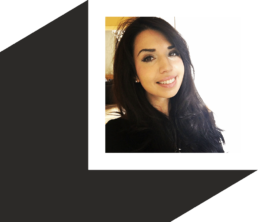
Katie Bayley
Katie Bayley is the Lead Anti-Racism Training Facilitator for Hallam TSA and a Coach for the Leeds Beckett University Anti-Racist School Award. Katie consults on anti-racism policy and practice, in addition to delivering racial literacy and anti-racism training to a wide range of schools, universities and businesses across the UK.
Free Anti-Racism Lesson Resources KS1-4- designed for use as part of the PSHE/RSHE/Citizenship curriculum.
You Be You
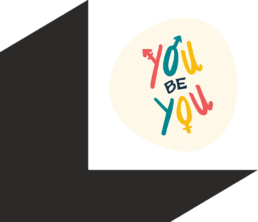
You Be You
You Be You – inspiring communities in their limitless choices
You Be You is an award winning social enterprise working towards the vision that no child leaves primary school believing their gender, race or class limits their potential.
We do this through our school programme, pupil/parent workshops, teacher training and home activity kits called ‘Be Me Bundles’. These are activity packs that each child can do in the home environment whilst thinking about the world around them. We’re also passionate about empowering teachers to become “Equity Champions” of their community; over 98% of our teachers have found our training powerful and helpful in their own development.
And finally, we’ve also appeared on BBC London Live talking about the importance of our work. Here’s our latest impact report which highlights the results of our programme and the positive difference we’ve already made across the community.
Recently won top 100 female social entrepreneurs and recognised as a diversity champion in Lambeth.
Our Cultivating a Culture of Belonging Training
Our Cultivating a Culture of Belonging Training
Our Cultivating a Culture of Belonging Training
Our Training Offer
We support all stakeholders in schools and trusts, in developing their consciousness, confidence and competence in considering who feels safe, who feels seen and who feels valued.
We can deliver face to face and virtually, for twilights, INSETs and conferences.
We will create a safe space for you to explore levels of belonging and psychological safety. We will create a brave space for you to explore the perception gap between different stakeholders.
- Reflecting on what gives us a sense of belonging
- Exploring our own relationships and journeys with belonging
- Considering how we gather staff voice on belonging
- Reviewing the perception gap between stakeholder groups
- Considering how to create a belonging culture and a belonging curriculum
- Discussing the policies and practices that need to change to increase levels of belonging
We are always delighted to be able to showcase the outstanding training delivered by Diverse Educators within our ITE curriculum. The facilitator is committed to developing diversity, equity and inclusion within and throughout the education system, which supports our trainees in becoming knowledgeable and confident with their own learning and development. Thank you for a fantastic session.
Katie Williams, SCITT Director
Hannah’s presentation on equity, diversity, inclusion, and belonging was incredibly impactful. Delivered at the start of the school year, it refocused our entire staff body on our commitment to our pupils and each other, and sharpened our focus on the part we play in creating a more inclusive community.
Sachin Choithramani, Assistant Headteacher, Bede’s School


